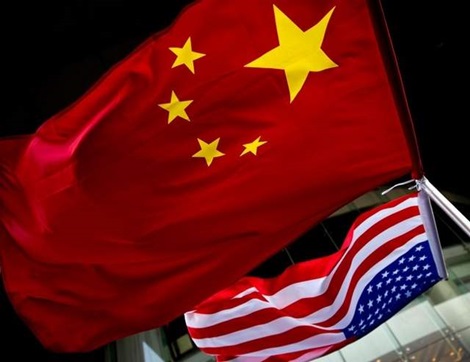
By Mark Anderson
ANN ARBOR, Mich.—Retired University of Michigan (UM) professor William Kauffman says UM’s ongoing research collaboration with the People’s Republic of China, an issue he has been raising for several years, continues aiding in the sensitive-technologies transfer to China.
AMERICAN FREE PRESS caught up with Dr. Kauffman during his brief remarks to an Ann Arbor GOP tea party group March 18. He fully explains his experiences on his website.
“We are transferring every bit of knowledge . . . that we have to the People’s Republic of China,” this longtime aeronautics engineering professor warns. The Waynesboro, Pennsylvania native and former University of Cincinnati professor added that UM hosts Chinese undergraduates, graduates and postdoctoral students to have them study at UM in Ann Arbor. And UM also has opened campuses in China and permits UM faculty engaged in United States Defense Department (DoD) research to meet with delegations of Chinese defense researchers.
Before Kauffman retired in 2007, UM’s leadership tried to have his tenure revoked and reportedly had campus police arrest him. The university even went so far as to suspend several classes he taught, including those on explosives, and on rockets and propellants.
Various U.S. universities regularly collaborate with China, though UM’s partnership with China appears to be particularly deep-seated. Last December, for example, China’s Jiao Tong University and Emory University of Atlanta, Georgia, formally opened a “global mental health” center in China.
In nanotechnology, a cutting-edge field that has military applications as well as civilian uses, there’s considerable collaboration between China and 10 U.S. schools of higher learning, including UM, as well as Oak Ridge National Laboratory (which does nuclear weapons development), Harvard University, Pennsylvania State University and six others. These 10 schools co-authored nanotechnology papers with 10 Chinese universities.
An academic paper which lists these linkages noted: “China has been fast ascending as a scientific power over the past decade, more than doubling both R&D spending as a share of Gross Domestic Product and the number of its researchers between the mid-1990s and mid-2000s.”
Kauffman recalls his UM department being virtually taken over by Chinese personnel. And he cites a 2006 Defense Security Service report for the DoD, entitled “Technology Collection Trends in the U.S. Defense Industry.” It notes that the globalization of defense business increases the threat from strategic competitors who exploit legitimate activities as a venue to illegally transfer U.S. technology.
UM’s policies do raise serious questions, considering that even pro-China globalist groups, such as the Chicago Council on Global Affairs, often readily acknowledge China’s current high-level cyber-espionage activities and intellectual-property thievery. And as AFP readies to cover the United Nations Arms Trade Treaty Conference, which addresses trade and control of both small arms and military armaments, such matters assume a heightened importance.
Mark Anderson is AFP’s roving editor. Listen to Mark’s weekly radio show and email him at [email protected].


